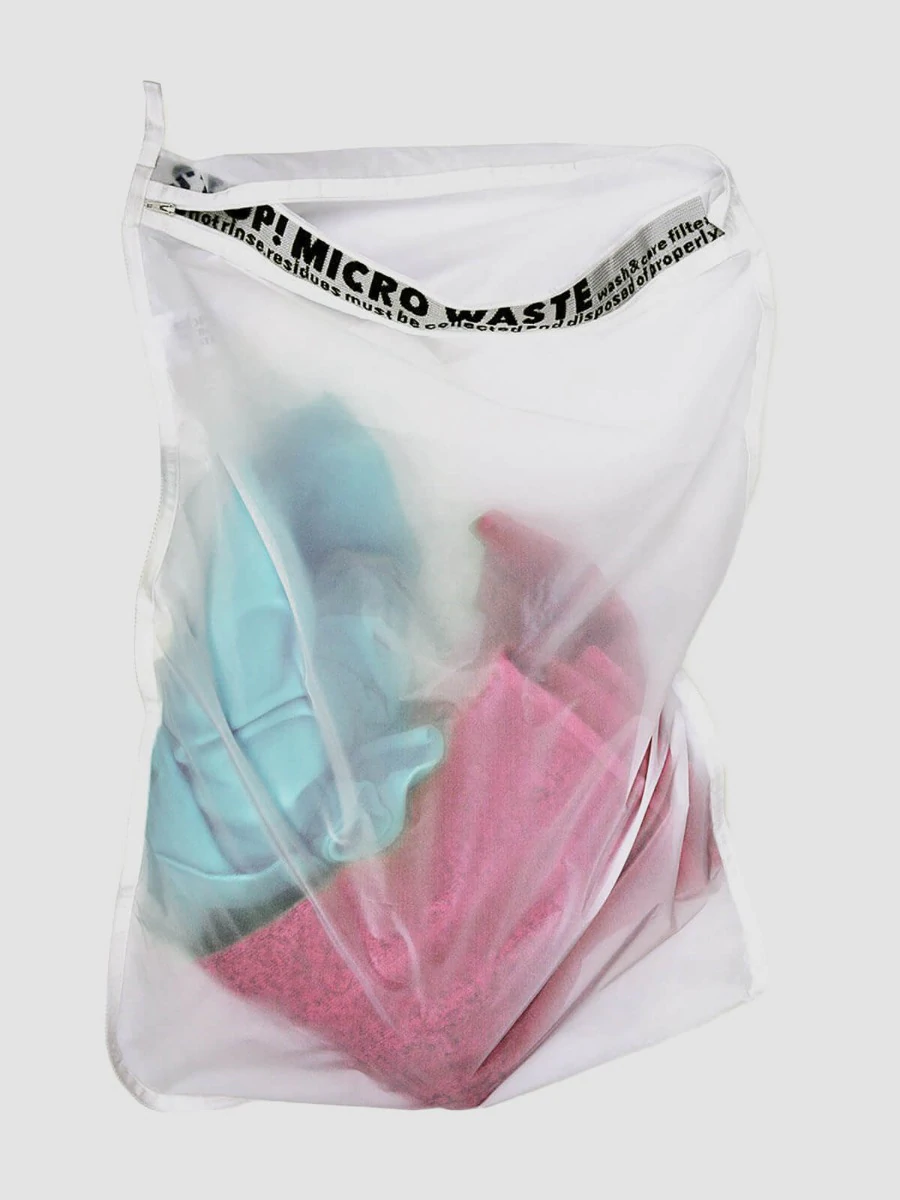How to deal with microplastics at home? Part 1
- URBAG Official
- Apr 15, 2022
- 3 min read
Updated: May 25, 2023
Conversation with Alexander Nolte and Oliver Spies, Founders of GuppyFriend.

This isn't a secret anymore. Our clothes shed harmful microfibers every time we wash them. These microfibers, which are stripped and carried off by friction and turbulence in the washing machine, enter our wastewaters, eventually ending up in the environment. More disturbing, recent research proves that we are eating and drinking plastic, every day!
Although the cost of tackling plastic pollution shouldn't lend on the customer's shoulders, there are affordable solutions that will help reduce our impact on the environment while washing our clothes.
URBAG speaks to Alexander Nolte and Oliver Spies, founders of GuppyFriend, about microplastics and their invention, a wash bag that captures microplastics.
Why did you create Guppyfriend?
In Germany, we have a clothing brand where we produce plastic-free, locally made clothing and closed-loop shoes. But we also offer outdoor clothing from other manufacturers in our retail stores, which are mainly made from synthetic materials.
We learned about the microplastic problem through a marine biologist at one of our club events. Through our own tests and discussions with additional experts, the extent and the catastrophic effects on people and the environment became clear to us.
Since almost no one had heard of microplastic pollution from clothing, we wanted to share our findings with as many people as possible and provide practical, everyday solutions for reducing microplastics.

Can you tell us more about microplastics in our clothes? How big is the issue and what are the consequences for our waterways and landfills?
Most of our clothing is made from synthetic fibers and the percentage is only increasing. Synthetic textiles made of polyester, nylon, or polyacrylic, for example, have advantages, but their microplastic particles pollute nature.
Synthetic textiles are a major source of microplastics in the environment. This is because synthetic textiles lose microplastic fibers when washed and worn.
Scientists from the University of California in Santa Barbara have calculated that the daily amount of plastic fibers released into the wastewater by washing synthetic clothing in a city of 100,000 inhabitants is equivalent to about 15,000 plastic bags thrown into the sea.
What technology makes GuppyFriend effective to catch microplastics?
Using a Guppyfriend Washing Bag is super simply and doesn’t add any complexities to your laundry routine.
You simply separate your synthetic material clothes such as Nylon, Polyester, Spandex and place them in the Washing Bag.
You then put the Washing Bag into the washer, add your non-synthetic clothes for example Cotton, Hemp, Wool and wash as usual.
After the wash you empty your textiles from the Washing Bag and then remove the retained fibers from the inside of the filter fabric by hand and dispose of them in the residual waste.
The Guppyfriend Washing Bag works in two ways:
1. In the washing machine, the main drivers for fiber shedding are abrasion and friction in the drum. By separating your synthetic material clothes e.g., Nylon, Polyester, Spandex, and placing them in the Washing Bag, you reduce mechanical forces and your clothes therefore loose significantly less fibers in the first place.
This also means that you protect your clothes. They will look new for longer and you extend their life.
2. The microfibers that still do shed, are then reliably retained inside of the bag and therefore do not pollute the wastewater.
GuppyFriend created a charity called STOP! Micro Waste - Can you tell us more about its mission and how people in the UK can participate?
STOP! Micro Waste is a non-profit organization that we initiated in 2017. We link education with activities in nature to raise awareness about (micro)plastic pollution. With the STOP! Plastic Academy we share our (micro)plastic knowledge based on our research findings, experiences and scientific papers.
Our Train-the-Trainer program enables school children and company representatives to share the acquired knowledge with their peers, colleagues and customers.
Raising awareness about microplastic pollution is fundamental, but at the same time we need hands-on solutions. Therefore, we want to encourage people to reflect and adapt their own consumption behavior and daily rituals; and to inspire them to develop their own STOP! station against microplastic pollution.
To know more about STOP! charity, visit : https://stopmicrowaste.com/en/
.png)



Comments